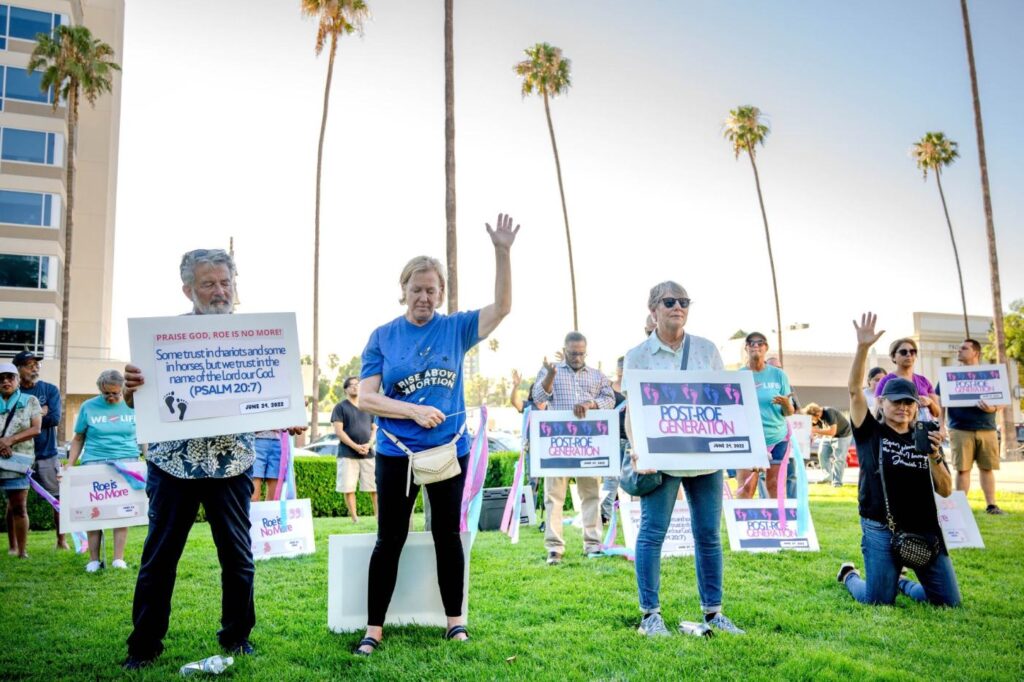
Maternal mortality? Women’s rights? Feminist tattoos?
These are just a few of the issues on American minds since June 24, when news broke that U.S. Supreme Court has decided to overturn Roe vs. Wade.
Here’s a look at some of the hotter Roe-related topics that have popped up on Google search trends over the past four days.
1. Is childbirth dangerous?
Google search trends show the Roe ruling led to a wave of concern about the health risks associated with carrying a baby to term.
The answer they’ve found is this: For American women, the risk of giving birth varies wildly, depending on race, age and the state where they live.
The top line number isn’t great. In 2020, the last year for which data is available, 861 American women died either because of their pregnancy, during childbirth, or within 42 days of giving birth, the range of outcomes the World Health Organization uses to define “maternal mortality.” Given that there were more than 3.6 million live births in the United States in 2020, the overall ratio was 23.8 deaths for every 100,000 births, according to the Centers for Disease Control.
That made childbirth the nation’s 57th most common cause of death. It also ranked the United States as the worst place for maternal mortality of any industrialized nation.
But the data shows that within the United States the dangers of childbirth fluctuates dramatically, depending on age, race and where a woman lives.
For example, the CDC report from 2020 found that Black women died at a rate of 55.3 per every 100,000 births, more than twice the overall average. And women over the age of 40, regardless of race, died at a rate of 107.9 for every 100,000 births, a figure driven by the shocking death rate of 263.1 for every 100,000 births among Black women over 40.
The CDC also noted, in an earlier report, that childbirth death rates jump from state to state. California, is the safest place to give birth, 4 deaths per every 100,000 births, while Louisiana is the most dangerous, with 58.1 deaths per every 100,000 births.
2. Are women’s rights being taken away?
That search lit up Google in recent days, and the answer to many of the related queries is a white hot “hell yes!”
But it’s not all about the Roe ruling.
For example, if you ask Google “Are women’s rights being taken away?” the top answer takes you to an Emily’s List editorial entitled “Women’s Health Rights Being Slowly Taken Away,” which would be more relevant (though less sadly ironic) if it hadn’t posted in 2011.
Other answers are more current or on point.
A US News and World Report editorial from early May (days after a draft of the Roe opinion was leaked) suggests women are losing ground on bodily autonomy, child care and employment. Another takes you to an undated report from Amnesty International that enumerates the ways in which women don’t have full access to universal issues like the right to live free from violence and discrimination, a right to health care and the right to equal pay.
3. Feminist tattoos
Since the Roe ruling, the query “pro choice tattoo ideas” spiked, though to be fair the starting point (zero) was low, hinting that our “spike” doesn’t necessarily signify widespread demand.
But when you track other, potentially related searches — “Are abortion tattoos a thing?” “Are tattoos feminist?” — the results suggest the niche isn’t tiny.
It also shows that Roe hasn’t been the only public event to prompt interest in women and body art.
For example, one result shows that the 2016 election — in which Hillary Clinton won the popular vote but, because of the Electoral College, lost presidency to the seemingly less-than-feminist Donald Trump — prompted some women to get tattoos to express their displeasure at that outcome. Another led to a story on Tattoo.com about the rise of feminism in tattoo culture. And yet another takes you a Huffpost.com article from 2017 about the rise of tattoos that express solidarity with Planned Parenthood.
If you’re wondering, here’s a gallery of “feminist tattoos.”
